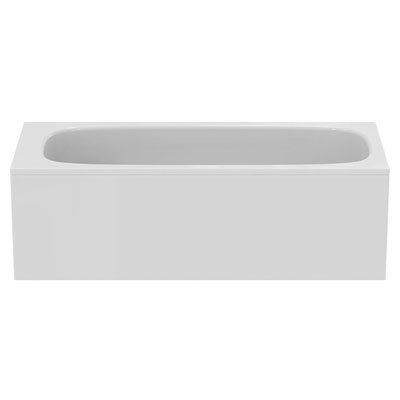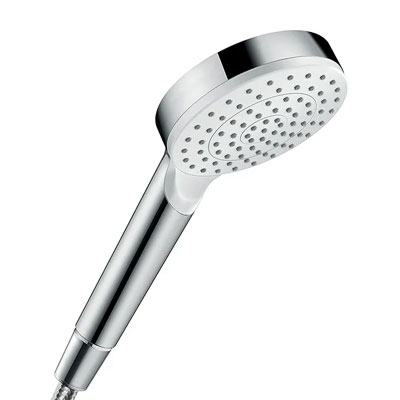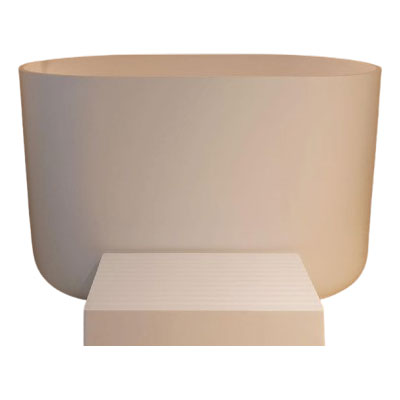Which Actually Uses More Water, a Shower or a Bath? The Answer Might Not Be What You Expect
Keen to save water and money? Your daily bathroom habits are key

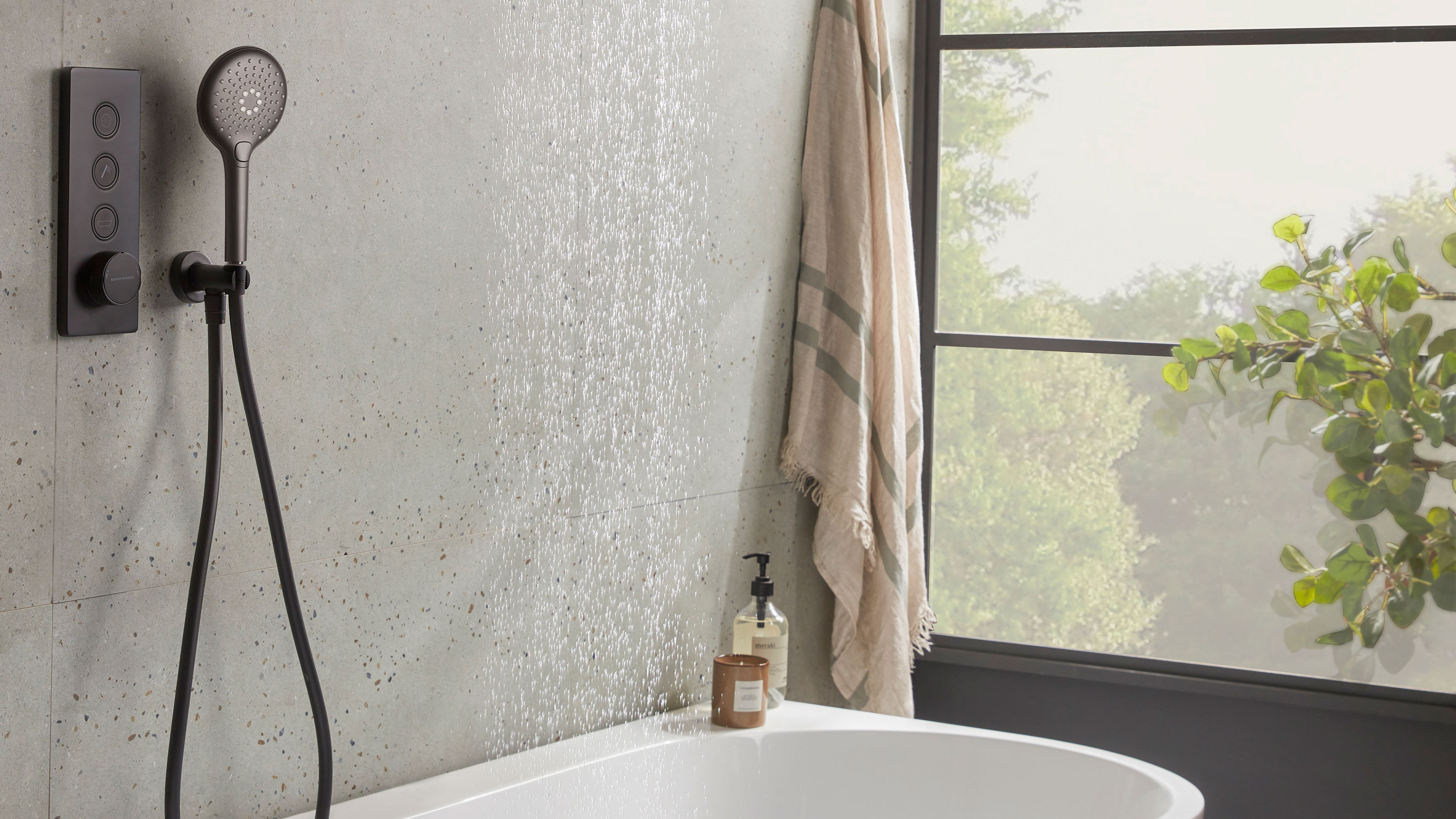
The Livingetc newsletters are your inside source for what’s shaping interiors now - and what’s next. Discover trend forecasts, smart style ideas, and curated shopping inspiration that brings design to life. Subscribe today and stay ahead of the curve.
You are now subscribed
Your newsletter sign-up was successful
You might think the answer to shower vs bath water usage is somewhat obvious, but, as the experts we spoke to explained, there are lots of influencing factors at play here.
Whether you have your heart set on modern bathroom ideas that involve an all-singing, all-dancing top-of-the-range shower, or a sculptural stone bathtub, you will no doubt be keen to know how much water each is going to guzzle.
Keeping an eye on household water usage is not only useful when it comes to your monthly bills, but it also means you will be doing your bit for the planet. You maybe think you already know the answer: a shower uses less, right? However, that's based on a pretty quick shower, by in large, so the real answer depends on your habits.
Our guide is here to explain how much water you can expect to use when showering or bathing to help you make informed decisions when it comes to your daily routines.
Shower Vs Bath Water Usage — What’s the Difference?
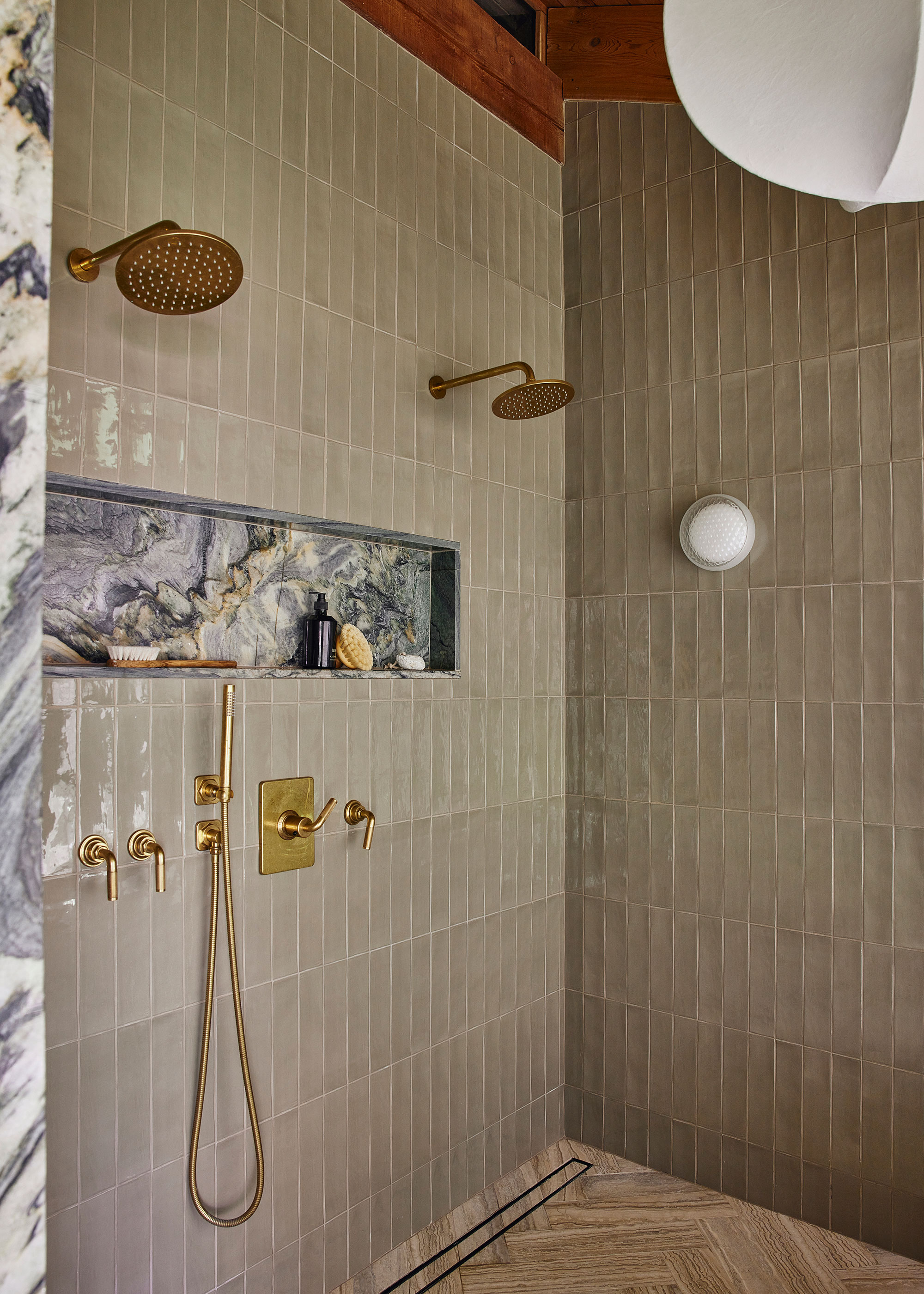
Whether you are trying to lower you water bills or are remodelling a bathroom and finding it hard to decide whether to fit a bath, shower or both, understanding how much water each is likely to guzzle will come in handy.
"When it comes to water usage, a traditional bath typically uses more water than a short, efficient shower — but the real answer depends on how long you shower and the type of shower system you have," explains Jeevan Seth, CEO of JTP. "A full bath can use around 80–100 liters, while a standard shower uses roughly 9–12 liters per minute. That means a five-minute shower is usually more water-efficient, but longer or high-pressure showers, such as rainfall or power showers, can quickly use just as much – if not more – than a bath."

Jeevan Seth is the CEO of JTP, a well established bathroom hardware brand. He is heavily involved with the product development side of the business and is always looking to design innovative new ranges for his customers.
How Have Modern Designs Made a Difference to Water Usage?
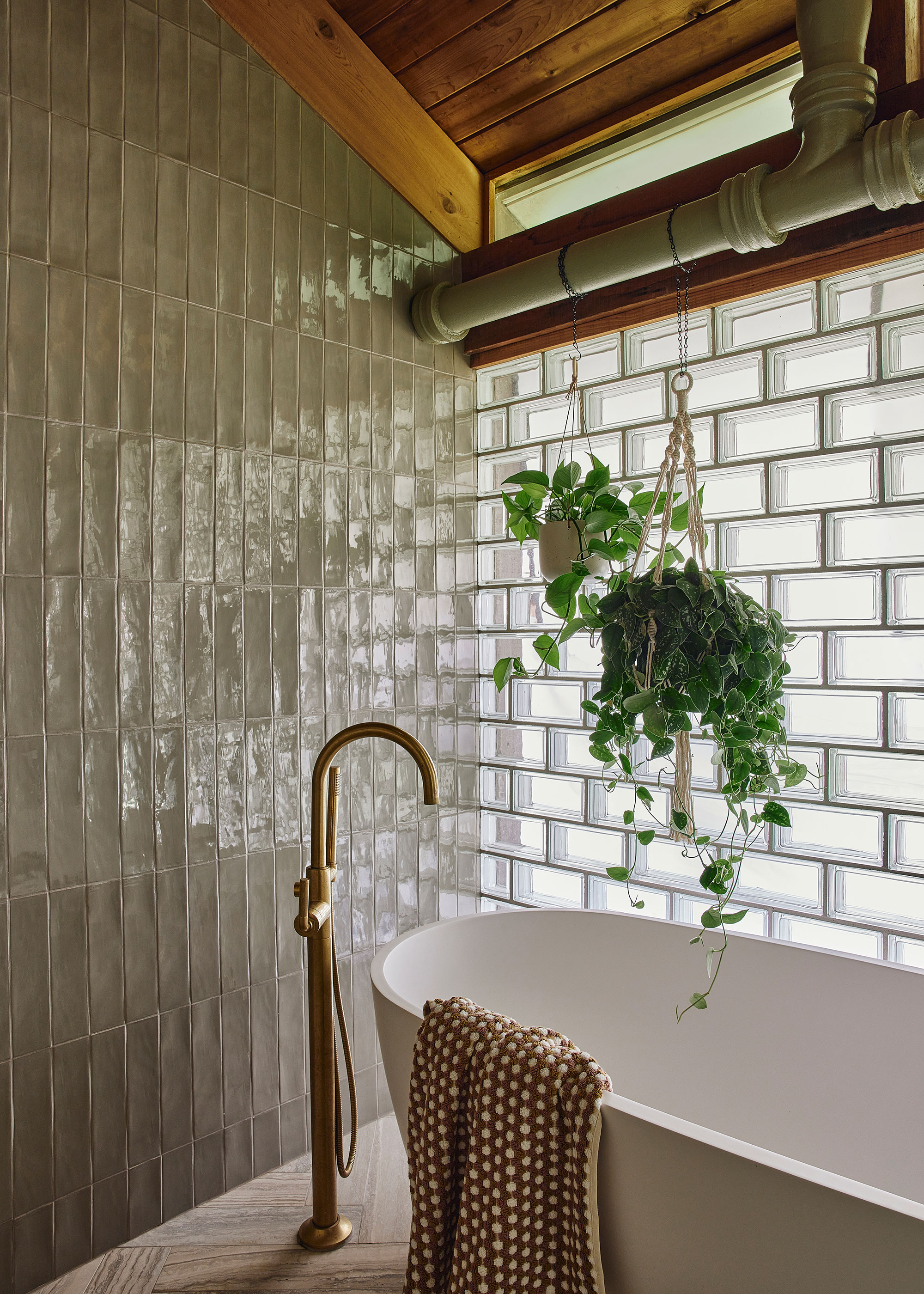
There have been some huge technological breakthroughs in recent years in terms of the efficiency of bathroom fittings. While shower trends have seen over-sized shower heads and shower cabins with multiple body jets become much-desired features, increasingly, manufacturers are finding ways to produce models that use significantly less water than they once did.
The Livingetc newsletters are your inside source for what’s shaping interiors now - and what’s next. Discover trend forecasts, smart style ideas, and curated shopping inspiration that brings design to life. Subscribe today and stay ahead of the curve.
"New technology has helped showers to be much more water-efficient, particularly low-flow and aerating models that save water without sacrificing pressure," explains Farook Member, director and home improvement expert at QS Supplies. "Baths, however, have not really altered to any great degree in their water usage. There are some newer models that are more space-efficient and use a little less water, but generally, the savings are minimal."
And therein lies the problem with baths. While you can run a shallower tub, this kind of defeats the whole point of the dreamy bathtub experience.
"The whole idea of a bath is to fill the tub with water — once you change that, it's not really a bath anymore," picks up Jimmy Hiller, the CEO and president of Happy Hiller. "But there are some bath tubs designed to use less water: for example, baths with a narrower base, built-in seating, or slipper baths.
"There are so many ways to make your shower more efficient, while there’s almost nothing you can do about baths," continues Jimmy. "For example, you can install a low-flow showerhead, take shorter showers, or fit a thermostatic valve to stop wasting water while waiting for the right temperature."

Farook Member is the director of QS Supplies and a seasoned expert in the home improvement and bathroom industry with over three decades of experience.

Jimmy founded Hiller Plumbing in 1990, crafting a business model that focused on three essential elements: a high level of professional skill, a positive attitude, and the integrity to do the job right.
Do Showers or Baths Use More Water?
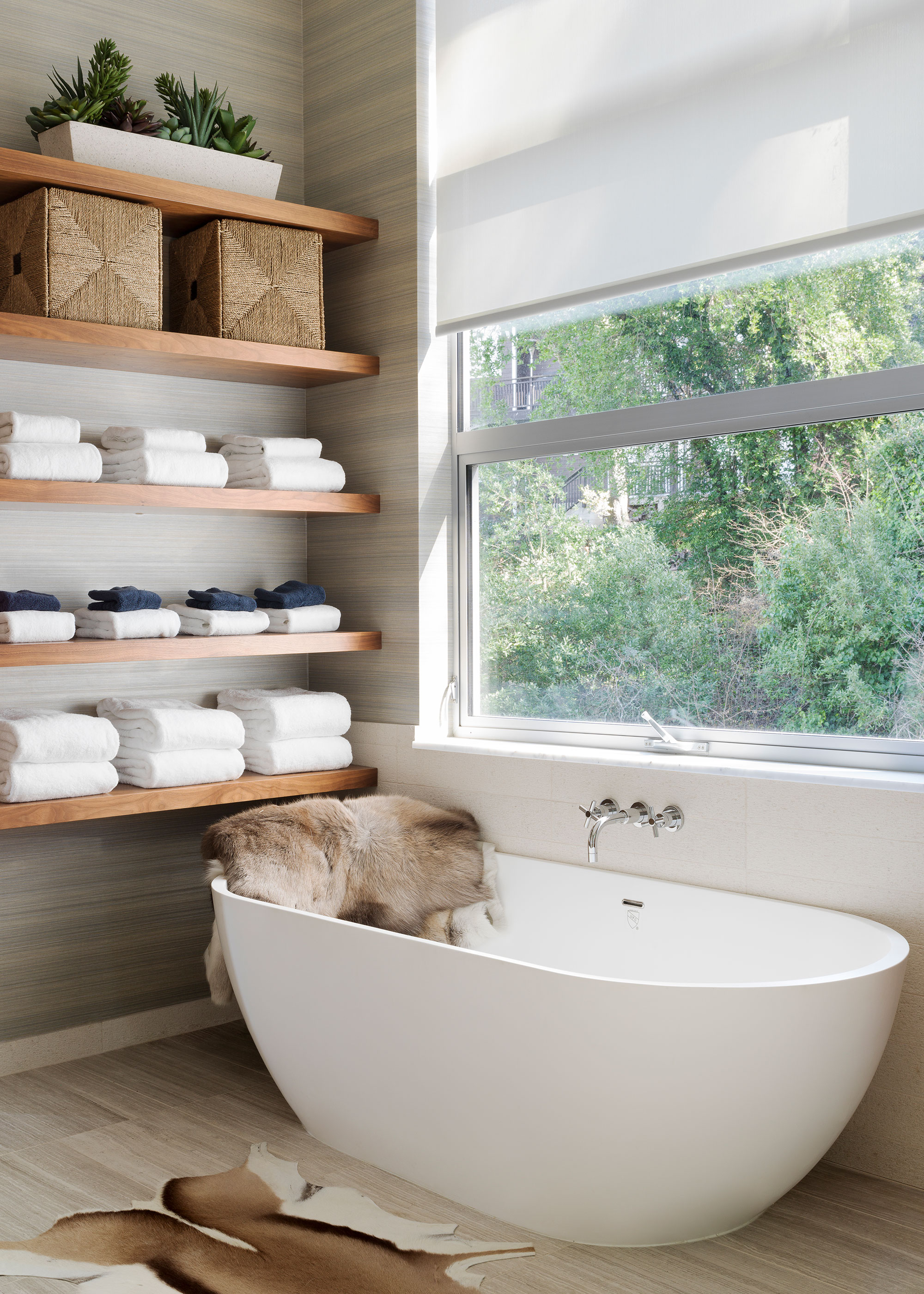
It seems pretty clear, then, that if you are looking at how to save water and are keen to limit your overall usage, showering is the answer.
"A shower is always more water-efficient," states Jimmy Hiller. "But if you have bad showering habits, such as running water non-stop, waiting for too long for it to get warm enough, or taking too long a shower (for example 15 minutes or more), a bath can be a more efficient option for you — but still, that’s a pretty rare thing."
Farook Member has some more figures that help put the difference between the water usage of the two into perspective.
"A bath uses around 80 to 100 liters, which can differ according to size and how full you make the bath," he says. "A shower averages around 9 to 12 liters per minute, so a shower of five minutes might well use less than half that taken by a full bath. But showers lasting more than five minutes start to get close to, if not well above, the amount used by a bath, especially with older, high-flow shower heads."
Should I Choose a Bath or a Shower?
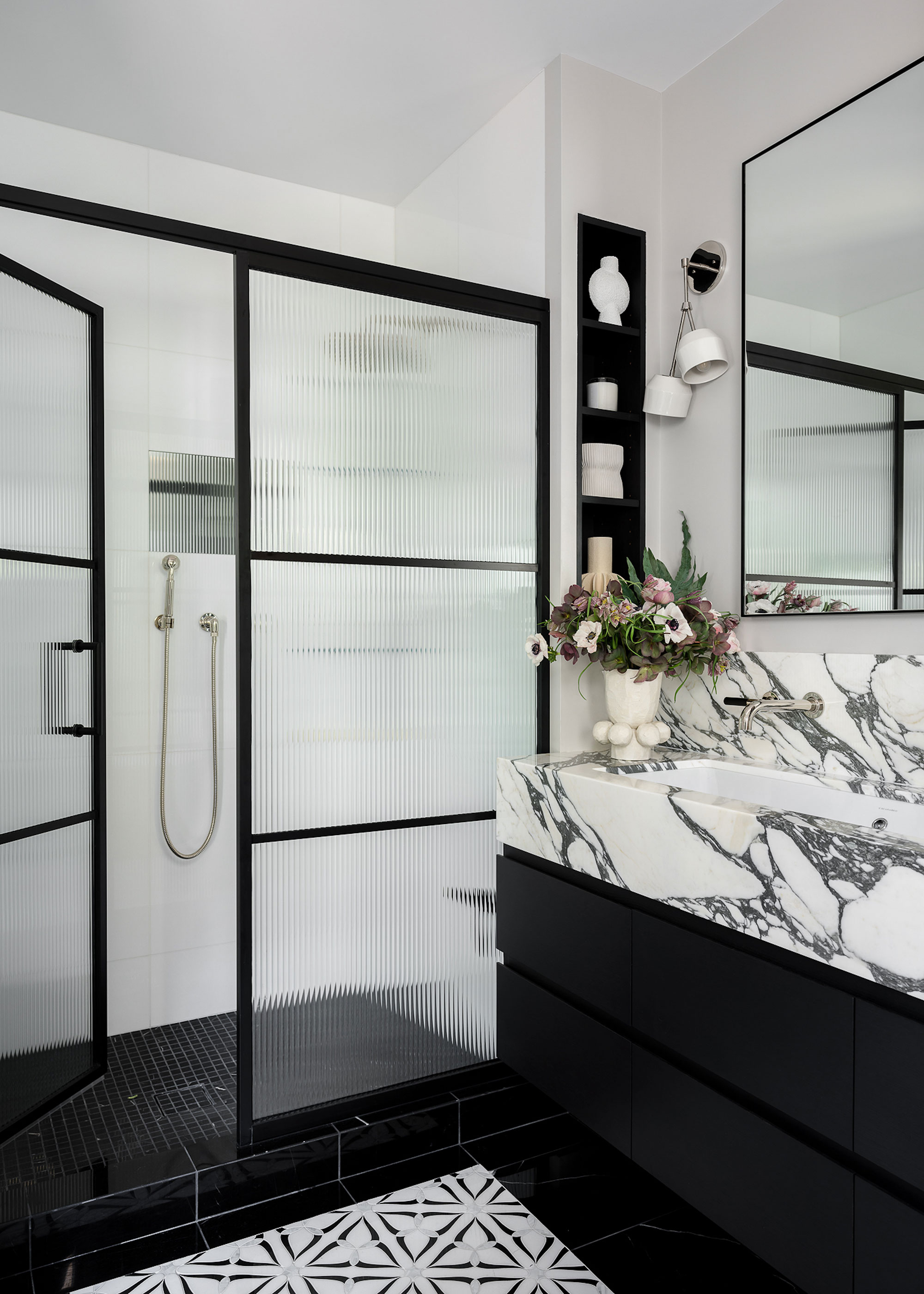
Whatever your bathroom ideas, everyone has different preferences when it comes to bathing or showering. Some love the idea of a good long soak in the bath while others prefer an invigorating drench under a deluge of powerful jets.
"It really comes down to your needs and lifestyle," says Jeevan Seth. "Showers are ideal for everyday convenience, saving time and water, and they're particularly well-suited for compact or high-traffic bathrooms.
"Baths, on the other hand, offer a more relaxing, spa-like experience — perfect for unwinding or for family homes with young children."
FAQs
Is It Cheaper to Run a Bath or Have a Shower?
When planning out how to budget for a bathroom remodel, the deciding factor for many people when it comes to choosing between a bath and shower will be cost. So, water usage aside, which option is cheapest?
"A shower is generally cheaper in the UK," says Farook Member. "Of course, the longer you make the shower, the worse the value is, so the timing is an important factor."
There are also steps you can take to lower both your bathing and showering costs.
"Reduce costs by taking five-minute or less showers," begins Farook Member. "Installing a shower head designed to conserve water, and not overfilling the bath will also help.
"You could install a timer in the bathroom to remind you how long you have been showering, or switch to a cool setting to consume less power," continues Farook. "If saving money and water is your priority, then quick, efficient showers are generally the best option. That said, if you're one who enjoys soaking every so often, just be aware of how often you're filling the tub to maximum capacity."
,
If you are short on space, be sure to look into shower bathtub ideas which mean you won't need to sacrifice one for the other.

Natasha Brinsmead is a freelance homes and interiors journalist with over 20 years experience in the field. As former Associate Editor of Homebuilding & Renovating magazine, Natasha has researched and written about everything from how to design a new kitchen from scratch to knocking down walls safely, from how to lay flooring to how to insulate an old house. She has carried out a number of renovation projects of her own on a DIY basis and is currently on the lookout for her next project.
